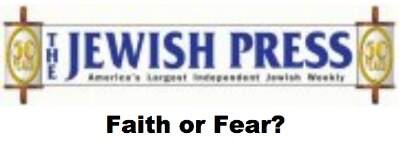SCRUPULOSITY, GUILT & RELIGIOUS OCD
Scrupulosity sufferers engage in compulsive over-responsibility. They feel exaggerated guilt, check if they hurt someone's feelings, constantly apologize, or justify themselves to others, despite knowing rationally they've done nothing wrong and are not responsible for everyone. Others experience religious OCD.
Read more about Dr. Brodsky on Scrupulosity and Guilt OCD.
They are consumed reviewing past events over and over to determine if they either weren't helpful enough to others ("savior complex"). Even worse, they worry they did something unethical, illegal (offend, steal, cheat, lie, mislead, slander), bigoted, or "politically incorrect" (racial slur, etc.). Often they fear they'll be tracked down, exposed, "turned in," ostracized by friends and family, shamed, fired, "cancelled," isolated the rest of their lives, punished, or imprisoned.
Read more about Dr. Brodsky treatment of Guilt OCD.
Email a question, or make an appointment online or call 212-726-2390. In-person appointments are available in New York City and northern New Jersey. Teletherapy is available nationwide in 42 states for OCD from New Haven, Connecticut to Fargo, North Dakota.
At their job, they might check their work many times to ensure they haven't disclosed confidential information or made a legal mistake on a contract. They double check if they paid enough or got too much change, warn people about perceived "danger," or remove obstacles people might trip on.
Read more about Dr. Brodsky on Scrupulosity and Guilt OCD.
Even if they in fact had a minor ethical infraction, the guilt and the lengths to which they're willing to go to correct the situation utterly consumes them. Friends and coworkers reassure them they did nothing wrong and there's no need to apologize, but it's never enough for the sufferer to feel closure. Read more about Dr. Brodsky's work with Scrupulosity.
Read more about Dr. Brodsky on Scrupulosity and Religious OCD.
Religious OCD:
Sufferers of religious OCD have exaggerated guilt about what they perceive as sin, unethical behavior, blasphemous or sacrilegious thoughts, or ordinary fleeting questions about their faith. They often fear divine punishment.
Read more about Dr. Brodsky on Religious OCD.
Read more about Dr. Brodsky on Scrupulosity and Religious OCD.
Religious OCD doesn't necessarily mean their values and beliefs are false; they might indeed be doctrine. What makes it OCD is how much it consumes them and the lengths to which they'll go to achieve perfect certainty about their moral standing. It's important to understand that there is no difference between the thoughts of someone with OCD and someone without OCD.
Read more about Dr. Brodsky on Religious Guilt OCD.
Everyone has uncomfortable thoughts every day; it a normal part of being human. The only difference is how someone with OCD reacts to it.
Click and read articles about Dr. Brodsky's work with Scrupulosity, Guilt, and Religious OCD. Email a question to Dr. Brodsky or arrange a free consultation within 24 hours.
Dr. Brodsky on Religious Guilt OCD.
If you've read enough and feel ready to start, you can make an appointment online now or just call 212-726-2390. Virtual teletherapy is available nationwide in 42 states for OCD from Wichita, Kansas to Lexington, Kentucky. In-person sessions are available in Manhattan and northern New Jersey. We're everywhere you are!









